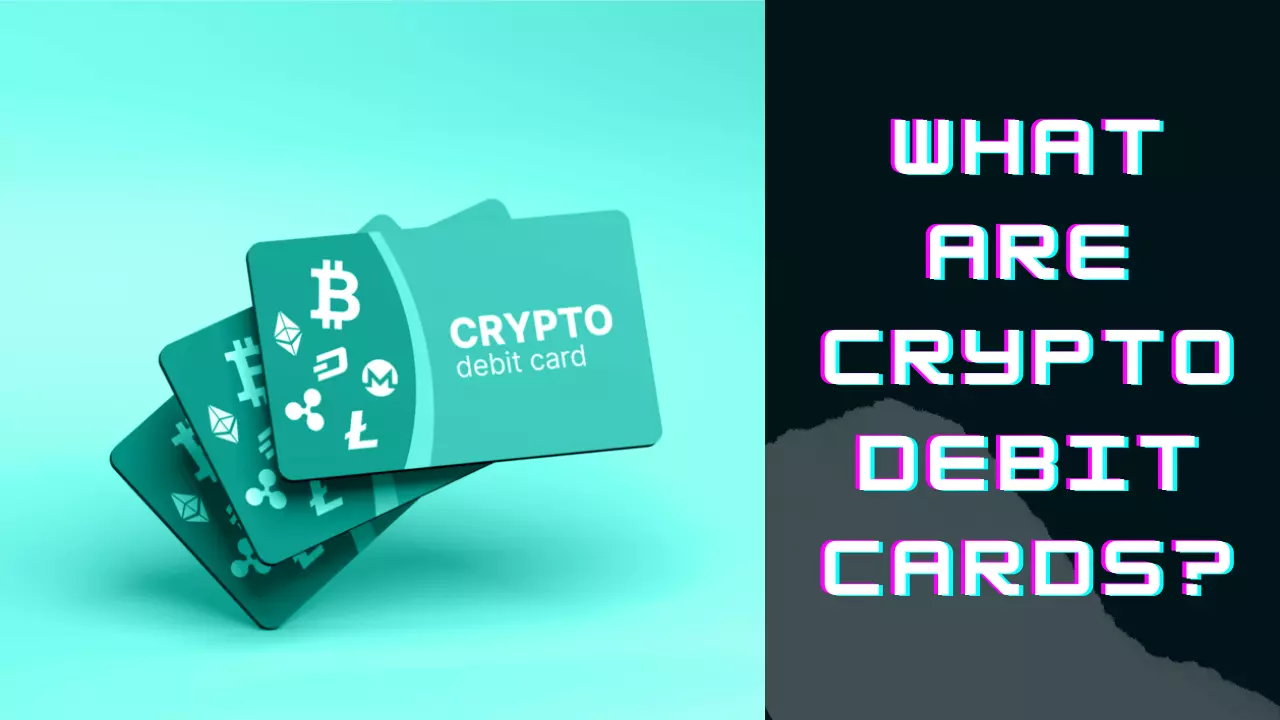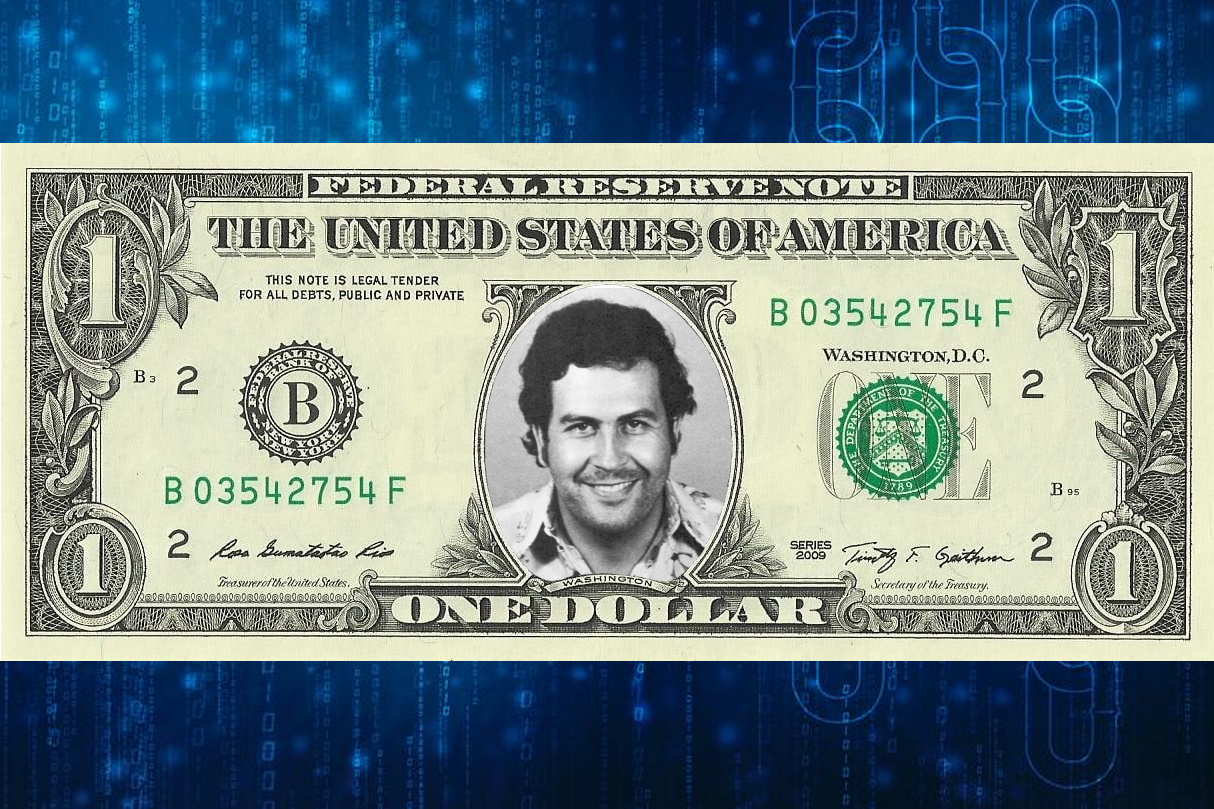
The rise of cryptocurrency shows that we are at the start of a new financial era.
Early crypto users said that the digital currency was the start of a big change in the way money worked. They said it was the first step toward a completely decentralized system of money.
Early adopters were right when they said that crypto would become as legitimate as traditional fiat money.
What they may not have thought of was the move to make crypto more legitimate by using traditional financial products like money.
Recent events show that old-fashioned money can still work. It’s one of the most exciting things going on at the intersection of the crypto world and traditional finance.
Crypto debit cards are one example. They’re changing the game, but how? Read on to find out.
Learn How To Trade Cryptocurrencies Like A Pro.
Table of Contents
What Is a Crypto Debit Card?
Cryptocurrency debit cards let you use BTC, ETH, XRP, and other altcoins to pay for things like gas and food.
They work just like a traditional debit or credit card. Most of the time, you don’t have to think about whether your physical card will work at a store.
That’s because many of the products out there have been released with Visa and MasterCard, which means they can be used in a lot of places.
They work like this. In the first place, you add the digital currency of your choice to your crypto debit card. This can be done through an app or a website.
Then, you can go shopping. As a result, many cryptocurrency debit cards have higher spending limits and lower transaction fees than traditional debit cards.
Let’s say you finally get that cappuccino with your crypto debit card. Once the transaction is done, the card provider will convert the digital currency into cash,
which means that the coffee shop will get your payment in cash, like USD, GBP, or EUR. How much easier could it be to do than that?
How Do Crypto Debit Cards Work?
Now that we’ve covered the fundamentals of crypto debit cards, let’s take a closer look at how they work.
To begin, there are still limitations to using cryptocurrency in the real world today. You cannot simply walk into a store and pay with Bitcoin, as the majority of merchants are unwilling to accept the cryptocurrency.
Retailers are wary of digital currencies for a variety of reasons, including the uncertain legal status of payment processors, currency volatility, and the general public’s lack of understanding of blockchain–the cryptocurrencies that power technology.
Fortunately, cryptocurrency debit cards and other “traditional” financial products are attempting to further legitimize cryptocurrency as legitimate forms of payment. How do they accomplish this? Here is an illustration:
John enters a neighborhood coffee shop that, like the majority, accepts debit cards. Because a Bitcoin debit card functions identically to a debit card issued by a bank, John has the option of using his traditional debit card or the brand new crypto-based debit card.
John decides to put his crypto debit card through its paces. While the coffee shop does not currently accept cryptocurrency, it does accept debit cards. John is handed his cup of coffee by the cashier, who swipes his card and hands him his receipt.
When the cashier swiped the card, the processing company accessed the crypto wallet associated with the card and extracted the dollar amount of crypto required to purchase the cup of coffee.
The processing company then converted the cryptocurrency to conventional fiat currency and transferred it directly to the coffee shop’s account.
This occurred in a matter of seconds and demonstrates yet another way in which cryptocurrency is becoming a more accessible method of payment in the real world.
5 Things to Consider When Using a Crypto Debit Card
If you want to get a crypto debit card, here are some tips, tricks, and best practices to keep in mind as you look for the right one.
#1. Different types of cryptocurrency debit cards exist.
Crypto debit cards, like traditional debit cards, come in a variety of shapes and sizes, so the best one for you will depend on your needs.
If you want to keep your crypto spending under control, you could use a prepaid crypto debit card that you load with a set amount of your coins.
Some crypto debit cards also provide additional benefits such as cash back (sometimes in cryptocurrency), points, or other perks.
According to Stephen Ehrlich, founder and CEO of cryptocurrency platform Voyager Digital, cash-back rewards programs in particular provide an opportunity to build wealth.
You’re effectively making a potentially profitable investment because you’re earning cryptocurrency as a reward. Look for a crypto debit card with redeemable rewards.
Remember that there are thousands of different cryptocurrencies, but only a few of them work with debit cards.
As a result, double-check that the cryptocurrency you own or want to acquire is compatible with the debit card you’re thinking about using.
#2. You place an order for crypto debit cards, or apply for them.
If your cryptocurrency exchange platform offers them, you can get a crypto debit card from them, or from a crypto payment service provider.
You must order or apply for the card, and you may be required to meet certain requirements, such as having your identity verified.
#3. Crypto debit cards are just like regular debit cards in terms of security.
The same security concerns apply to cryptocurrency-linked debit cards as they do to traditional debit and credit cards.
Keep your card and its details as safe and private as possible, just like any other payment card.
#4. Using a crypto debit card has tax implications.
When you pay with your crypto debit card, you’re selling cryptocurrency and exchanging it for dollars, and you could be selling at a higher or lower price than when you bought the digital currency, resulting in a capital gain or loss.
Some card issuers will generate the 1099s you’ll need for tax purposes automatically, but they’ll only report your total revenue from cryptocurrency sales.
Individual transactions will not be kept track of by them. You must file your taxes correctly.(To learn more about cryptocurrency and taxes, click here.)
#5. Your cryptocurrency debit card may be subject to fees.
There are fees associated with some crypto-linked debit cards.
There could be crypto-related fees, such as an exchange fee for converting cryptocurrency to dollars, in addition to the usual fees associated with a traditional debit card, such as ATM and monthly fees.
You can use your cryptocurrency to buy your next couch or cappuccino once you’ve set up your cryptocurrency to be spent with a debit card. It is entirely up to you whether or not you use it and for what purpose.
Crypto Debit Cards vs. Traditional Debit Cards
Crypto debit cards have a similar basic concept to traditional debit cards. So why not use your regular credit card? Traditional debit cards don’t have a few advantages that crypto debit cards do.
Many crypto debit cards, for example, do not charge users for exchange rate fees. Cryptocurrencies, as opposed to separate currencies on the other side of the market, are decentralized currencies.
As a result, converting Bitcoin into US dollars is identical to converting the tokens into Russian rubles, and you will have the same amount of money regardless of your location.
A crypto debit card does not require a bank account, but it does require an account with a cryptocurrency exchange or wallet. As a result, such cards make online purchases easier and faster.
How Can You Choose a Crypto Debit Card?
Open a crypto debit card with the company where you already have cryptocurrency in your account. There are a few companies that issue crypto debit cards in the United States, but they may only be available to select customers.
If you have multiple cryptocurrency wallets from different providers, you can compare rewards programs. However, the amount and type of crypto you earn vary by card. Several crypto-debit cards
A Crypto.com Visa Card, for example, awards Crypto.com Coin, or CRO, as a form of reward. Cardholders who have held on to their CRO tokens for at least 180 days can earn 1% CRO Rewards on the lowest tier of the card.
Assuming you have at least $400,000 worth of CRO staking with Crypto.com for at least six months, you’ll be eligible for the maximum reward of 8 percent.
The Coinbase Card, on the other hand, gives back up to 4% in a digital asset of the user’s choice. There is a waiting list for Coinbase’s debit card at the moment.
However, rewards aren’t the only thing to consider. Make sure the product is worth the cost by comparing fees and other terms.
It is possible to fund your crypto debit card with either a stablecoin or an asset that is more volatile, even if you only have one option. To avoid tax issues, Santa recommends using a cryptocurrency that is backed by the US dollar, such as Bitcoin.
Alternatively, you could let your card decide for you. To avoid putting customers in an “uncomfortable tax position,” the CEO of Voyager Digital, Stephen Ehrlich, is launching a crypto debit card based on the USDC.
Are Crypto Debit Cards the Future?
Visa debit cards are now being offered by some of the most popular cryptocurrency exchanges, including Binance and Coinbase.
In order to top up your account with funds from your crypto exchange account, you won’t have to pay any fees. Crypto.com and Blockcard are two of the most popular card issuers.
It’s possible that these products will become more common as PayPal enters the cryptocurrency market and crypto awareness grows.
Learn How To Trade Cryptocurrencies Like A Pro.
Related Question And Answer
Which crypto debit card is best?
Best Bitcoin Debit Cards of 2021
- Best Overall: Coinbase.
- Best Low-Fee Card: BlockCard.
- Best for Cardholder Perks: Wirex.
- Best for Cashback: BlockFi.
- Best for U.S. Residents: BitPay.
- Best Variety of Cryptocurrency Supported: Crypto.com.
- Best No-Fee Card: Nuri.
- Best for Cashback: Binance.
Are crypto cards free?
Banks usually charge their most valuable customers hundreds of dollars per year for metal cards. Crypto.com is offering them to CRO token holders for FREE: NO monthly fee. NO annual fee.
How much is a Bitcoin ATM card?
Price: $14500. Free shipping to North America.
How do I put money on my crypto Card?
Topping up my Crypto.com Visa Card via Debit or Credit Card:
- Go to the Card page.
- Tap on Top Up.
- Select Credit Card.
- Tap on Add Credit or Debit Card. a. Input all required card information. b. Tap Add Card.
- Input the top-up amount in USD.
- Confirm the transaction (Rate will be held for 15 seconds)
How do I withdraw money from crypto?
How to submit a USD withdrawal request?
- On the homepage of the App, tap Transfer > Withdraw > Fiat.
- Tap on your USD balance and Withdraw USD.
- Tap Add Bank Account or select the preferred bank account if it has already been added. …
- Review the USD withdrawal details and tap confirm to have it processed.
How do I pay with my crypto Card?
Open your Crypto.com app and click the shopping bag icon on the Home Screen to access Pay. Alternatively, click the “Pay” button on the dashboard. 5. Click “Scan”, and then scan the QR code to pay.
Can I buy crypto with debit card?
It’s possible to buy cryptocurrency with a card that supports 3D Secure. In order to purchase cryptocurrency using this payment method, you won’t have to fund your account beforehand. It’s possible to buy cryptocurrency without having to wait for a bank transfer to finish.
Can I buy crypto with prepaid card?
When using a prepaid card, you don’t have to worry about overspending and not being able to pay it back. It is possible to buy cryptocurrency with a pre-paid card from a number of exchanges.



